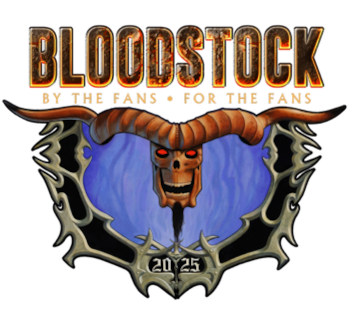Band Line Up 2023
Band Photo Gallery

HATE


No one combines death and black metal quite like Poland's Hate. With unflinching viciousness and a sense of atmosphere unique to the band, on Rugia, their twelfth full-length, they push the boundaries of their craft even further. "It was clear to me that it should build upon and evolve from our previous record 'Auric Gates Of Veles' (2019) both musically and lyrically. However, every Hate record stands as a separate journey, and never twice to the same place. You never know exactly where it will lead you" states vocalist/guitarist ATF Sinner, who has led the band since 1991. Fresh blood in the band's lineup also helped contribute to Rugia's unique sound. Pavulon (drums), who had played with the band since 2014, was forced to step down from the band due to serious health issues. The band tapped Nar-Sil (Neolith, Virgin Snatch, Embrional) to take his place. "Working with a new drummer this time around was a fascinating experience for me. Nar-Sil's technique and presence are quite different from Pavulon's and that definitely comes across. I believe we managed to construct a refreshing new chapter to our discography, composing nine truly sinister onslaughts of pure rage."
Writing for Rugia commenced shortly after Auric Gates of Veles was released. However, Hate soon began to tour extensively in support of their then new opus, and the production of new music was put on the back burner. But come 2020 and the COVID pandemic, the band's touring plans with Belphegor and Suffocation were abruptly cut short. With this unexpected infusion of free time, the band decided to buckle down and finish writing the material they were working on.
Sinner and Nar-Sil were joined by Domin on lead guitar and Tiermes on bass, who played with the band live since 2018, to complete the lineup. "Although I wrote the riffs, main arrangements and lyrics, we all worked on what you hear on Rugia. We put the pieces together and re-arranged fragments as a team. Our albums are always a collective effort and Rugia was no different," asserts Sinner. Sound-wise, they were mainly inspired by nineties extreme metal, both black and death, and they wanted to keep their sound as organic as possible. Warts and all. "It sounds quite harsh, very dynamic and unrestrained. It also has a strong ambient element to it that emphasizes the material's tone and dark atmosphere. The rhythm section is more death metal influenced this time around, which harkens back to our roots. You could say that most of the songs on this album are 'pagan death metal' - a combination of epic riffs and ferocious blasting rhythms." One thing that might come as a surprise to fans is the manner in which Sinner uses his voice, which is a lot more sophisticated than on previous records. "I tried to make my voice sound at three different timbres, or even different people behind the microphone. Sometimes the voices are combined together, sometimes they are more like separate vocal lines. I wanted to build this enriched narrative, and at our shows, I think Tiermes will help me with some of the vocal lines to bring that effect to a live surrounding."
Lyrically, the album sees the band continue to delve into the depths of Slavonic mysticism. "Generally, all the songs on the album are dedicated to the ancient Slavic world - great migrations, wars, battles, and the struggle for survival. But there is also a philosophical level to it, which is very important. Slavic mythology is a collection of universal stories touching upon fundamental issues that we all encounter in our lives. Therefore it is a frame that allows me to write about contemporary problems that I encounter myself from a different perspective. Along the way, I discovered my pagan soul and I encourage people to do the same. I think everybody has this deeper, more profound identity based on understanding our unity with nature, something that goes beyond all the civilizations we have built." The album title is taken from the archaic name of a German island on the Baltic Sea now called Rügen. In ancient times, Rügen or Rugia, was a site of holy pilgrimage to the pagan Slavic people. It was the very heart of the western Slavic faith, housing the fabled stronghold of Arkona. The album is at its core a tribute to Rugia and its tribes and the culture they created.
The band elected to once again track the album in the Hertz Recording Studio in Poland, and it was recorded, mixed and mastered by the Wiesłaski Brothers (Behemoth, Decapitated). Everything was laid down over about two to three weeks, with longtime collaborator Michał Staczkun providing the ambient elements of the band's sound. The only struggle came about at the mixing stage, where the final character of the record emerges. "Here we encountered many problems, contradictory visions too. The producers had their own idea for the overall sound, which differed from what I had in mind, so we were trying to find a good compromise and it took us a few months." Given how strongly the personality of the record shines through it is safe to say that the compromise reached was definitely in its best interest, standing as perhaps the best sounding record in the band's long career. Hate is also celebrating thirty years of activity with Rugia, Sinner affirming he is as driven as ever. "Well, the fire is still burning! I'm proud that I have built a band with such strong energy, that's lasted for a long time in spite of numerous lineup changes and obstacles in our way. We are still here and we create with ever growing consciousness and dedication. The energy speaks through us. Honestly, I think of the band as something much bigger and more profound than the individual people involved in it over any given period of time. I believe we create a channel for energies that surpass us."






















